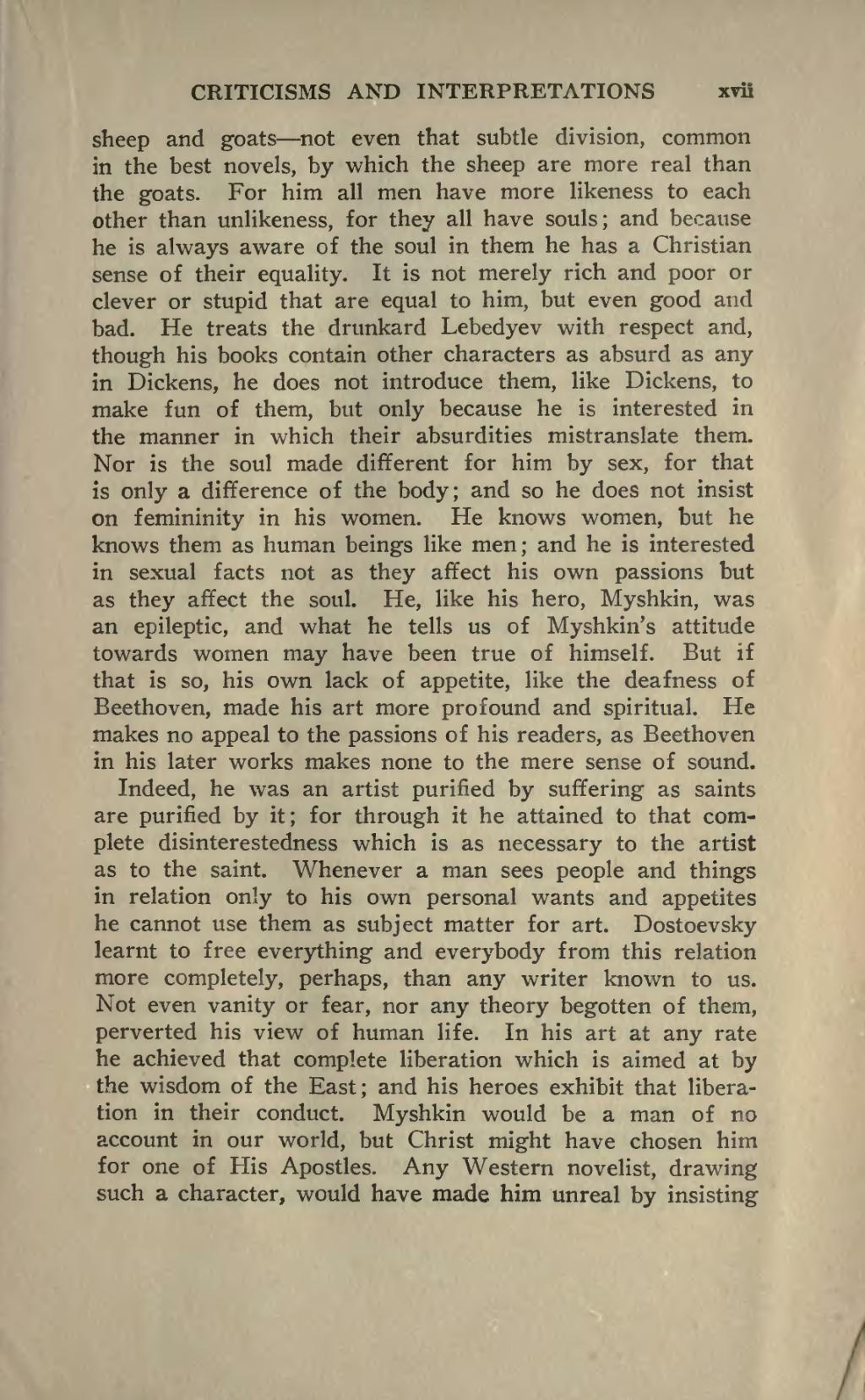sheep and goats—not even that subtle division, common in the best novels, by which the sheep are more real than the goats. For him all men have more likeness to each other than unlikeness, for they all have souls; and because he is always aware of the soul in them he has a Christian sense of their equality. It is not merely rich and poor or clever or stupid that are equal to him, but even good and bad. He treats the drunkard Lebedyev with respect and, though his books contain other characters as absurd as any in Dickens, he does not introduce them, like Dickens, to make fun of them, but only because he is interested in the manner in which their absurdities mistranslate them. Nor is the soul made different for him by sex, for that is only a difference of the body; and so he does not insist on femininity in his women. He knows women, but he knows them as human beings like men; and he is interested in sexual facts not as they affect his own passions but as they affect the soul. He, like his hero, Myshkin, was an epileptic, and what he tells us of Myshkin's attitude towards women may have been true of himself. But if that is so, his own lack of appetite, like the deafness of Beethoven, made his art more profound and spiritual. He makes no appeal to the passions of his readers, as Beethoven in his later works makes none to the mere sense of sound.
Indeed, he was an artist purified by suffering as saints are purified by it; for through it he attained to that complete disinterestedness which is as necessary to the artist as to the saint. Whenever a man sees people and things in relation only to his own personal wants and appetites he cannot use them as subject matter for art. Dostoevsky learnt to free everything and everybody from this relation more completely, perhaps, than any writer known to us. Not even vanity or fear, nor any theory begotten of them, perverted his view of human life. In his art at any rate he achieved that complete liberation which is aimed at by the wisdom of the East; and his heroes exhibit that liberation in their conduct. Myshkin would be a man of no account in our world, but Christ might have chosen him for one of His Apostles. Any Western novelist, drawing such a character, would have made him unreal by insisting
